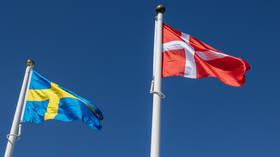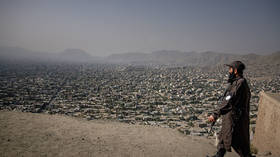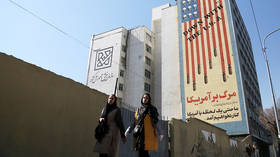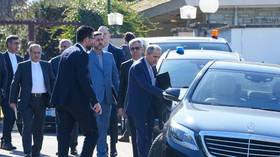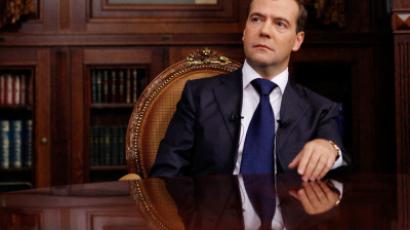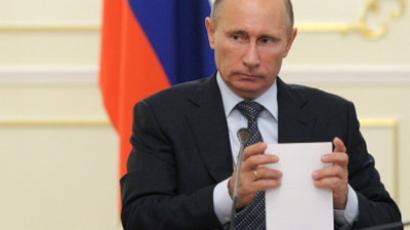One Eurasian Union, please. And hold the imperialism!
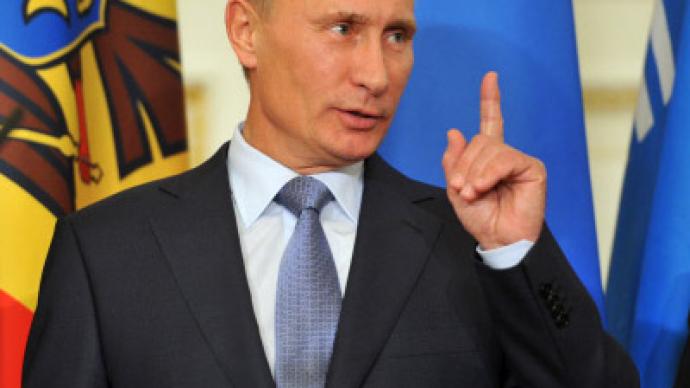
Prime Minister Vladimir Putin recently announced plans to create a Eurasian Union among the post-Soviet states, which the heavily-favored candidate in next year’s presidential elections says is vital for the future of Russia and the CIS countries.
On October 4, Vladimir Putin caused some waves in political and economic circles when he announced an ambitious plan to create a Eurasian Union, which would be the post-Soviet region’s answer to the European Union.The first thing Putin did following his announcement was to assure that the creation of such a union has nothing in common with imperialism or “recreating the USSR.”“First of all, it is not about recreating the USSR in any form,” Putin wrote in Izvestia, the Russian daily. “It would be naïve to try to restore or copy what is already a thing of the past. However, close integration on a platform of new values, politics, and economics is what is currently called for.”Indeed, many analysts agree that greater economic integration in the post-Soviet space may be the last hope for many Central Asian countries as the global financial crisis continues to plague world markets. The creation of a greater Eurasian Union, especially due to its geographical position between the European Union and Asian markets, would open the door to many new opportunities. “We are suggesting a model of a powerful supranational union that can become one of the poles of today's world while being an efficient connecting link between Europe and the dynamic Asia-Pacific Region,” Putin said. Meanwhile, the prime minister stressed the importance of embracing the Soviet inheritance as a means for competing in the modern field of globalization.“We have great prospects in humanitarian co-operation, in science, culture, and education, and in joint work on employment market regulation and the creation of a civilized environment for labor migration,” Putin noted. “We inherited quite a lot from the Soviet Union, including the infrastructure, an established production specialization, and a common language and cultural space.”Jointly using those resources for development is in our common interest, he added.Ever since the collapse of the Soviet Union in 1991 – and increasingly more so with the latest global economic crisis – there has been a steady move toward regional integration. First came the creation of the Commonwealth of Independent States in December 1991, which brought together 10 of the former republics of the Soviet Union into a loose-knit organization. More recent moves toward integration involve the elimination of customs and border controls, which have long hampered economic activity in the region. On January 1, 2012, for example, the Common Economic Space will be officially launched between Russia, Belarus and Kazakhstan. As Prime Minister Putin wrote in Izvestia (“A new integration project for Eurasia – the future is born today,” Oct. 4), the CES creates “a huge market with some 165 million consumers, with harmonized laws and with the free circulation of capital, services and manpower.”The advantages of the three-way agreement will remove migration, border and other barriers, as well as permitting people to freely choose where they will “live, study and work.” The CES also promises to significantly increase the amount of goods one can bring in for personal use without paying customs duties and undergoing “humiliating inspections,” Putin wrote. The establishment of Common Economic Space (as well as the so-called Customs Union) will continue to grow, Putin promises, eventually bringing Kyrgyzstan and Tajikistan on board.
"Nobody is forced to join"
In the opinion of Russian analysts, the suggestion that the creation of a Eurasian Union symbolizes the return of imperialistic thinking can be summed up in one word: impossible.“The basic difference between the construction of the Soviet Union and the integration process of the post-Soviet space is that Russia is not coercing any country to participate (in the Eurasian Union),” Dmitry Suslov, Deputy Head of the Center for European and International Studies at the Higher School of Economics, told RT. “Nobody is talking about using military force, for instance, against Ukraine [if it] doesn’t want to participate in the Customs Union and the Eurasian Union.”According to Kirill Koktysh, political analyst at the Moscow Institute for Foreign Relations, Putin has never shown any sort of “imperial tendencies” while in office.“Putin has never demonstrated – either in the presidential chair, or in the prime minister’s chair – a real desire to reconstruct the Soviet model." Russia does, however, attach significant importance to the project, which it envisions as moving into the future.Putin’s article is “a declaration of the fact that post-Soviet integration will continue to be number one priority in Russian foreign policy,” Suslov said, adding that “relations with external actors, such as the United States, China and the European Union will be judged by against the background of Russia’s relations with those countries (that are slated to make up the Eurasian Union).”Suslov went on to stress that those countries showing interest in the integration process are proceeding on their own accord, unlike was the case, for example, when the Baltic States were forced to join the Soviet Union.“There is no Russian soldier with a gun standing behind the leaders of those countries, forcing them to participate,” he said. “This is not how the Baltic States, for example, were incorporated into the Soviet state, when indeed Soviet troops were on their lands and the integration process was artificial and forced from Moscow.”Indeed, countries of the post-Soviet space desperately need access to Russia’s huge consumer markets for their economic survival.Robert Bridge, RT




